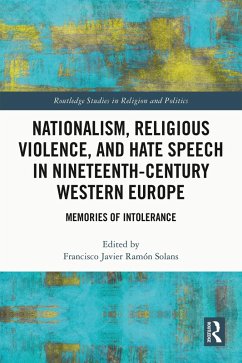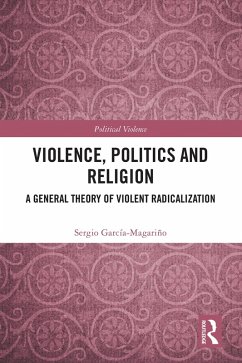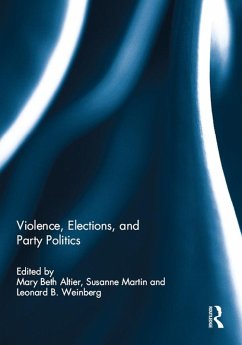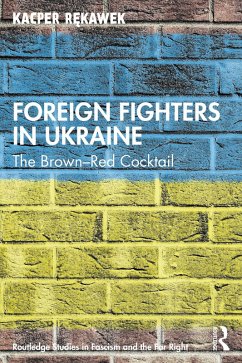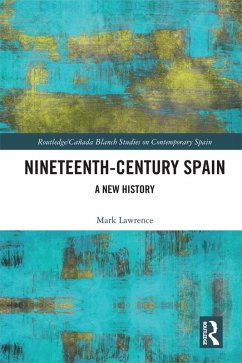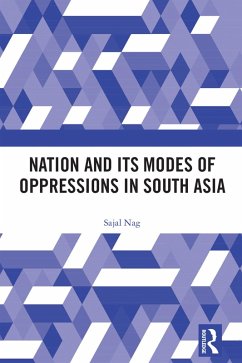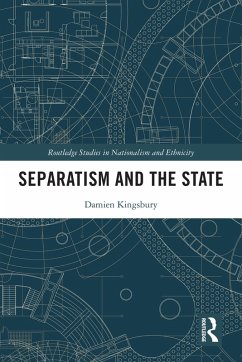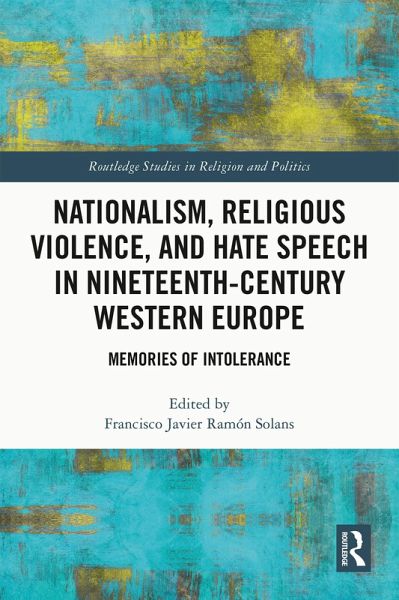
Nationalism, Religious Violence, and Hate Speech in Nineteenth-Century Western Europe (eBook, ePUB)
Memories of Intolerance
Redaktion: Ramón Solans, Francisco Javier
Versandkostenfrei!
Sofort per Download lieferbar
42,95 €
inkl. MwSt.
Weitere Ausgaben:

PAYBACK Punkte
21 °P sammeln!
Nationalism, Religious Violence, and Hate Speech in Nineteenth-Century Western Europe critically analyses the role played by different memories of past religious violence in public debates in nineteenth-century Europe.Looking back, European societies often did not seek to overcome their differences and create a framework of peaceful coexistence among various religions and denominations, but rather, more frequently, to fuel intra- and inter-religious hatred. Moreover, various violent pasts were mobilised to define what and who was intolerant, in order to mark the "other" as intolerant and there...
Nationalism, Religious Violence, and Hate Speech in Nineteenth-Century Western Europe critically analyses the role played by different memories of past religious violence in public debates in nineteenth-century Europe.
Looking back, European societies often did not seek to overcome their differences and create a framework of peaceful coexistence among various religions and denominations, but rather, more frequently, to fuel intra- and inter-religious hatred. Moreover, various violent pasts were mobilised to define what and who was intolerant, in order to mark the "other" as intolerant and therefore incompatible with societal values. To examine conflicting memories of violence and hatred, this book focuses on commemorations, statues, publications, and public polemics surrounding past religious violence. Three elements serve as a framework to explain the conflictive nature of these memories of intolerance: the age of commemorations, the culture wars, and the second confessional age. The authors explore cases in France, Germany, Italy, Spain, Switzerland, the United Kingdom, and the Low Countries, covering Catholicism, Protestantism, Anglicanism, Islam, and Judaism. The book focuses on iconic victims such as Giordano Bruno and Michael Servetus, collective massacres, and discourses surrounding religious hatred in events such as the Crusades. The cases of religious violence remembered in the nineteenth century span the Middle Ages and the intense period of religious violence known as the confessional age.
This book will appeal to students and scholars of politics, religious tolerance and freedom, hate speech, nationalism, religious history, and European history.
Looking back, European societies often did not seek to overcome their differences and create a framework of peaceful coexistence among various religions and denominations, but rather, more frequently, to fuel intra- and inter-religious hatred. Moreover, various violent pasts were mobilised to define what and who was intolerant, in order to mark the "other" as intolerant and therefore incompatible with societal values. To examine conflicting memories of violence and hatred, this book focuses on commemorations, statues, publications, and public polemics surrounding past religious violence. Three elements serve as a framework to explain the conflictive nature of these memories of intolerance: the age of commemorations, the culture wars, and the second confessional age. The authors explore cases in France, Germany, Italy, Spain, Switzerland, the United Kingdom, and the Low Countries, covering Catholicism, Protestantism, Anglicanism, Islam, and Judaism. The book focuses on iconic victims such as Giordano Bruno and Michael Servetus, collective massacres, and discourses surrounding religious hatred in events such as the Crusades. The cases of religious violence remembered in the nineteenth century span the Middle Ages and the intense period of religious violence known as the confessional age.
This book will appeal to students and scholars of politics, religious tolerance and freedom, hate speech, nationalism, religious history, and European history.
Dieser Download kann aus rechtlichen Gründen nur mit Rechnungsadresse in A, B, BG, CY, CZ, D, DK, EW, E, FIN, F, GR, HR, H, IRL, I, LT, L, LR, M, NL, PL, P, R, S, SLO, SK ausgeliefert werden.




